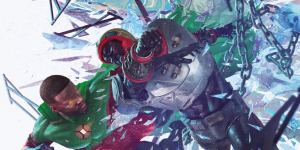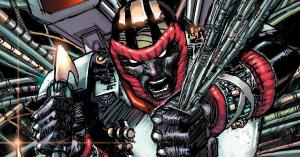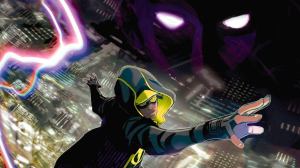Founded during a time when Black, Latino, and Asian characters were rarely prioritized in mainstream superhero comic book publishing, Milestone Comics was established with the purpose of directly addressing the longstanding gap in superhero narratives — a lack of human and mutant characters who genuinely reflected the diverse readership fueling the comic book industry continuing popularity. This bold and unprecedented initiative received crucial early support from DC Comics, one of the world’s most prominent and influential publishers of superhero content. Their partnership, which was unheard of at the time, signaled a commitment to ensuring Milestone Comics would hold a prominent place within the mainstream superhero landscape.
Videos by ComicBook.com
Unfortunately, after an early period of dynamic storytelling and critical acclaim, Milestone Comics experienced nearly two decades of dormancy that undermined much of its initial success. While several factors contributed to this decline, a key reason appears to be a general lack of top-level promotion. Since 2020, however, Milestone Comics has launched a renewed effort to recapture the spirit that defined its earliest achievements. This revival could — and should — be strengthened by renewed support from DC Comics. Indeed, even a modest investment could help secure a new generation of Milestone/DC fans.
The Time was Right for a Different Type of Superhero Comic, and Milestone Answered the Call

The brainchild of comic book creators Dwayne McDuffie, Denys Cowan, Michael Davis, Derek T. Dingle, and Christopher Priest, Milestone Comics was founded in 1993 with a clear purpose: to address the glaring lack of minority representation in mainstream superhero comics. The founders — all Black Americans with extensive experience across the comic book, animation, and publishing industries, contributing to projects ranging from The Falcon and Green Lantern to Comic Buyer’s Guide, Justice League Unlimited, and Black Enterprise magazine — believed that, with focused effort, they could introduce a viable universe of heroes and villains of color who weren’t just sidekicks or supporting characters, but front-and-center protagonists – the types of heroes the founders always wanted to create and develop on their own.
Milestone’s initial slate of comics included several groundbreaking titles. Hardware, by Dwayne McDuffie and Denys Cowan, follows the adventures of a high-tech, armor-wearing superhero who battles crime and corporate corruption. Icon, by McDuffie and M.D. Bright tells the story of an alien who crash-lands in pre–Civil War America and is discovered by an enslaved woman who raises him as her own. Blood Syndicate, by McDuffie and Ivan Velez Jr., centers on a group of former gang members who, after gaining superpowers, decide to stop fighting among themselves and instead fight for truth and justice. Static — a collaborative effort by all the Milestone founders — focuses on a teenage superhero as he struggles to balance adolescence with the responsibility of protecting his community.
All the titles were set in the fictional city of Dakota, which gave rise to the line’s popular nickname, the Dakotaverse. This shared setting made it easy to launch the first crossover event, Shadow War, a year later. The event also introduced two new series: Shadow Cabinet, created by Dwayne McDuffie, Robert L. Washington, Matt Wayne, and John Paul Leon; and Xombi, by John Rozum and Denys Cowan. Later, Kobalt, by John Rozum and Arvell Jones, was added to Milestone’s catalog of titles.
Milestone Comics – With DC’s Help – was Primed for Success
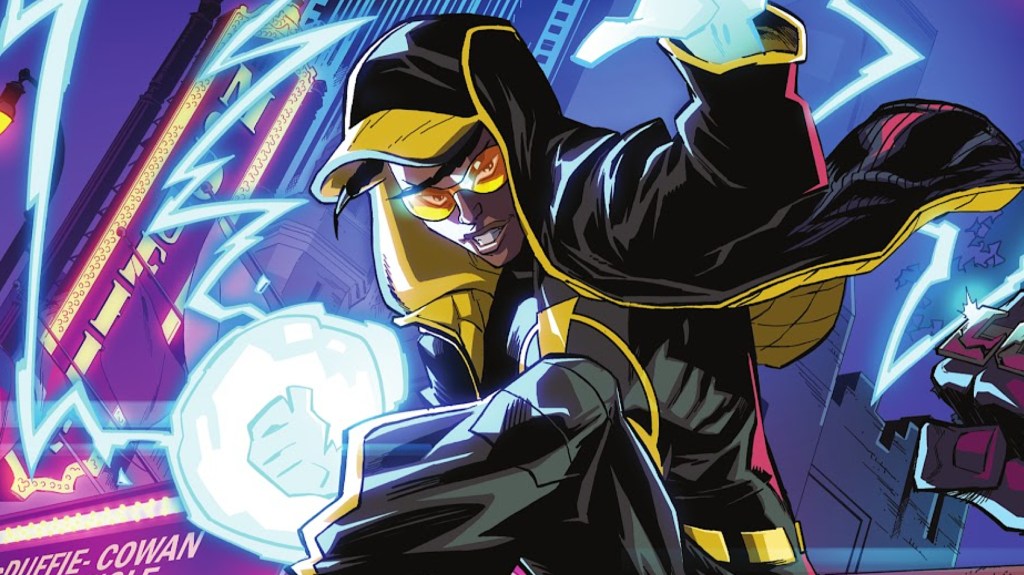
Establishing and running a successful comic book publishing business in a nation already saturated with long-established publishers, entrenched industry norms, and a fanbase often resistant to unfamiliar characters or experimental storytelling is no easy task. However, Milestone Comics had a crucial advantage. In the early 1990s, around the time that it was formed, DC Comics was also looking for ways to diversify its pantheon of characters. Milestone, a superhero comic book collective focused on publishing heroes of color, proved to be the perfect collaborative partner. In return, DC provided Milestone with the publishing expertise, logistics, and branding support that often overwhelms new comic book publishers.
The Milestone-DC deal wasn’t just any agreement — it was groundbreaking for its time. Under the terms, DC granted Milestone full creative and editorial independence. While DC handled publishing, distribution, and provided editorial consultation, Milestone Comics retained control over its operations, including ownership of its original copyrights. The only stipulation was DC’s right to decline publishing a title—but if they accepted it, they had to publish it as-is, without alterations.
Initially, the partnership proved highly successful for both sides. The Dakotaverse quickly built a dedicated fan base, with titles like Hardware and Icon earning critical acclaim. A crossover event, Worlds Collide, introduced Milestone characters to the broader DC Comics universe, paving the way for its characters to later become fully integrated into DC’s continuity. Meanwhile, DC received widespread praise for its role in supporting Milestone and championing diversity in superhero comics.
However, in 1997, four years after its start, Milestone ceased publishing new content. This was due in part to creative differences among the founders and the declining popularity of its titles, as well as comic books in general. In 2015, the most serious effort to revive Milestone and bring it out of hiatus began. This included DC’s creation of Earth-M within the DC Comics continuity, which would essentially take the place of the Dakotaverse. Developments lagged, however, with the first titles from the new effort, namely Milestone Returns #0, finally publishing in 2020, and mini-series for Static, Icon, Hardware, and Shadow Cabinet appearing between 2021 and 2024. As of this year, there are no ongoing Milestone series in publication.
DC Could and Can Still do More for Milestone
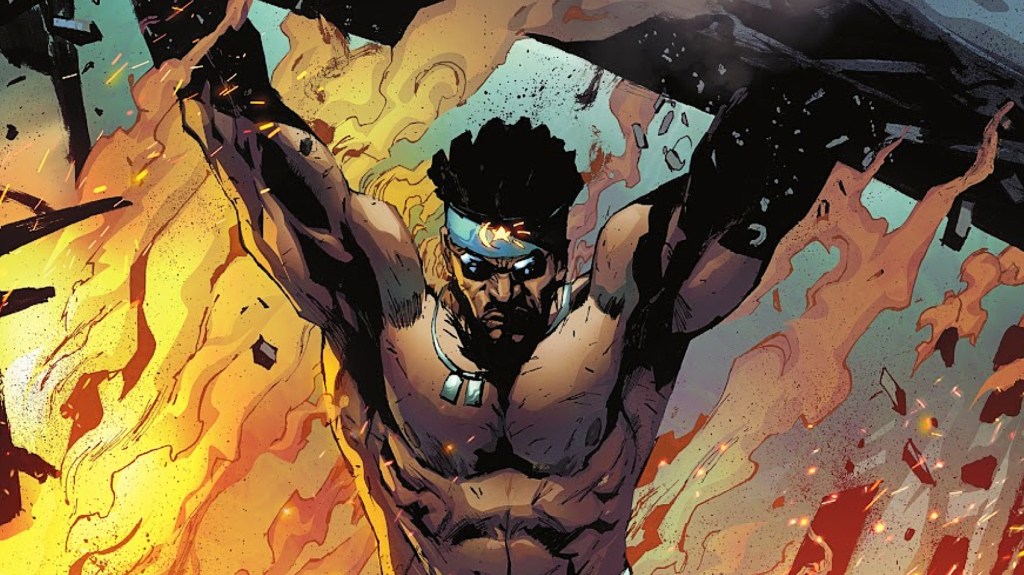
While DC’s support for Milestone cannot be overstated — especially in the early years — it is uncertain whether Milestone would have achieved the success it did without DC’s help in getting their books into comic book stores where readers could discover them. Integrating Milestone’s characters into the DC Comics universe was another significant advantage. However, it is clear that DC could have done more to ensure Milestone remained a continuous and enduring presence in the superhero comic book landscape.
Initially, DC’s hesitation to put the full weight of its support behind Milestone was understandable. However, that apprehension should have quickly faded in light of the success the Milestone titles achieved. That success has endured with the latest Hardware series in particular gaining critical praise while Static became so popular that it was adapted into the Emmy-winning Static Shock animated series in 2004, thriving not through merchandising or a toy line, but largely by word of mouth. It’s unfortunate that DC didn’t double down on its support earlier, or at the very least during Milestone’s 2020 relaunch.
Second, despite DC’s decision to integrate the Milestone characters into its continuity, they have been sorely underused. If DC’s commitment to building a more diverse cast of characters is genuine, then greater utilization of the Milestone heroes — who already have well-established origins, rich lore, and dedicated fan bases — would seem like an obvious choice. However, since the creation of Earth-M, the integration of Milestone characters into the broader DC Universe has been almost nonexistent. While DC continues to expand properties like Blue Beetle and Booster Gold, Milestone heroes remain largely confined to Earth-M.
Third, and perhaps most importantly for Milestone to have any hope for longevity, DC has mustered a rather lackadaisical marketing effort for its Milestone Imprint. This is somewhat incomprehensible, especially judging by the popularity and critical acclaim of some of its titles. This becomes particularly evident when considering how heavily DC has promoted imprints like Black Label or short-term events such as Future State. In other words, it’s clear that DC is capable of extensive promotion when it chooses to be; it’s simply confusing why it doesn’t apply the same effort to Milestone. Indeed, as a bold and visionary part of comic book history, Milestone deserves more consistent, long-term, and visible support from DC, not merely a seasonal revival every few decades.

